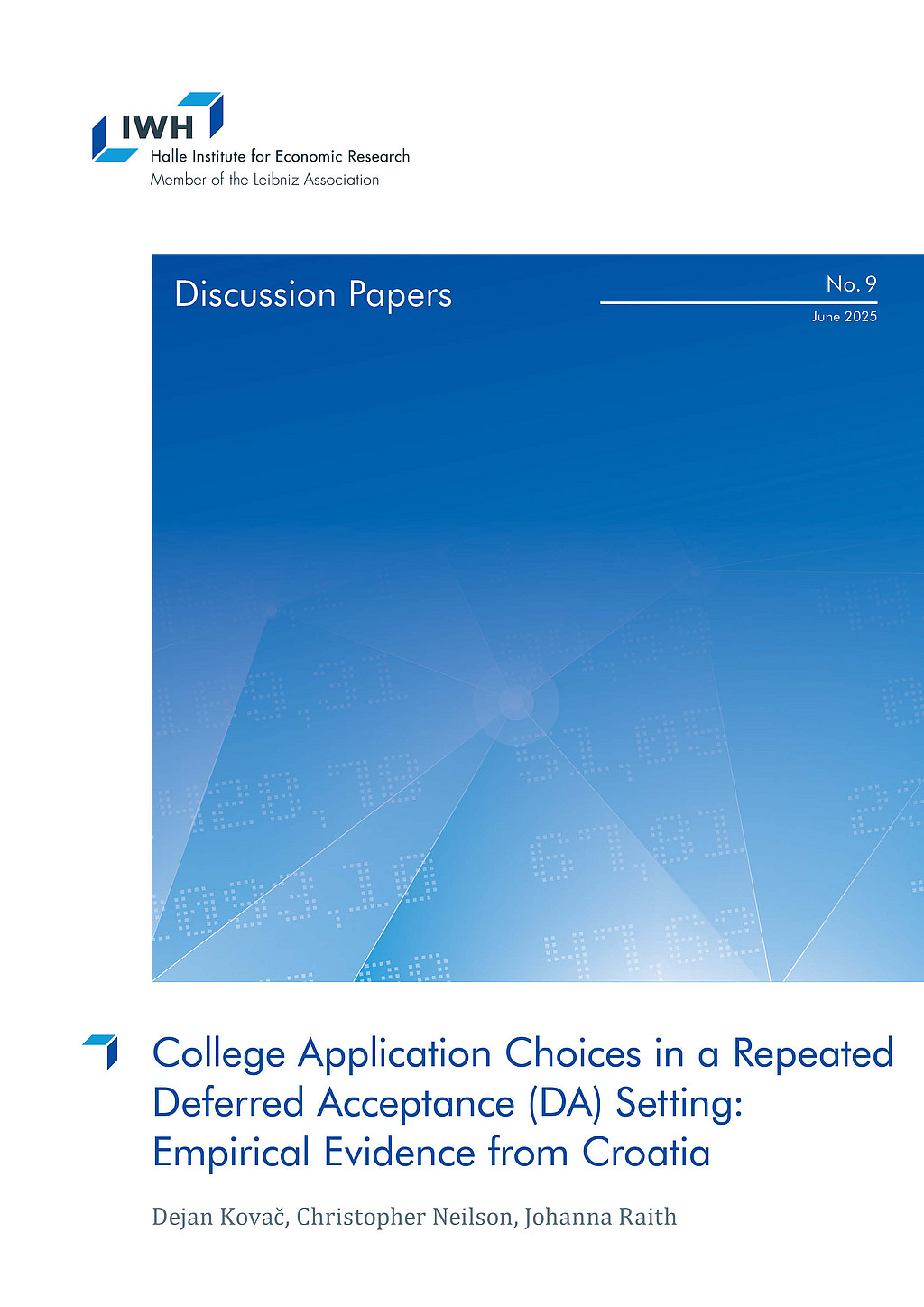
College Application Choices in a Repeated Deferred Acceptance (DA) Setting: Empirical Evidence from Croatia
How do beliefs on admission probability influence application choices? In this study, we empirically investigate whether and how admission probability is reflected in application choices in a centralized admission system. We exploit a novel setting of a dynamic deferred acceptance mechanism as employed in Croatia with hourly information updates and simultaneous application choices. This setting allows us to explore within-applicant strategic adjustments as a reaction to changing signals on admission probability. We show in an RDD analysis that applicants react to negative signals on admission probability with an increased propensity to adjust their application choices by 11-23%. Additionally, we show how application strategies evolve over time, while applicants learn about their admission probability. The group most-at-risk to remain unmatched improves their application choices by applying to programs with a higher admission probability towards the application deadline. Yet, we also identify a popular and potentially harmful strategy of applying to safer programs before applying to more risky “reach” programs. About a quarter of applicants have the potential to improve their application choices by resorting their application choices.
17. Juni 2025
https://doi.org/10.18717/dp7785-1k65





